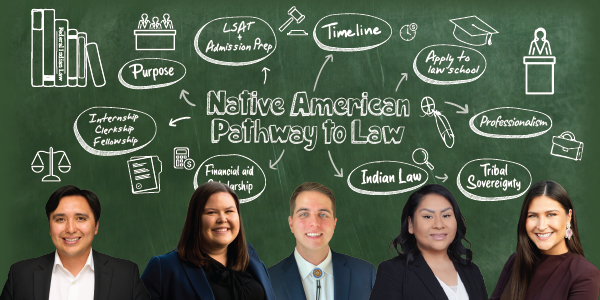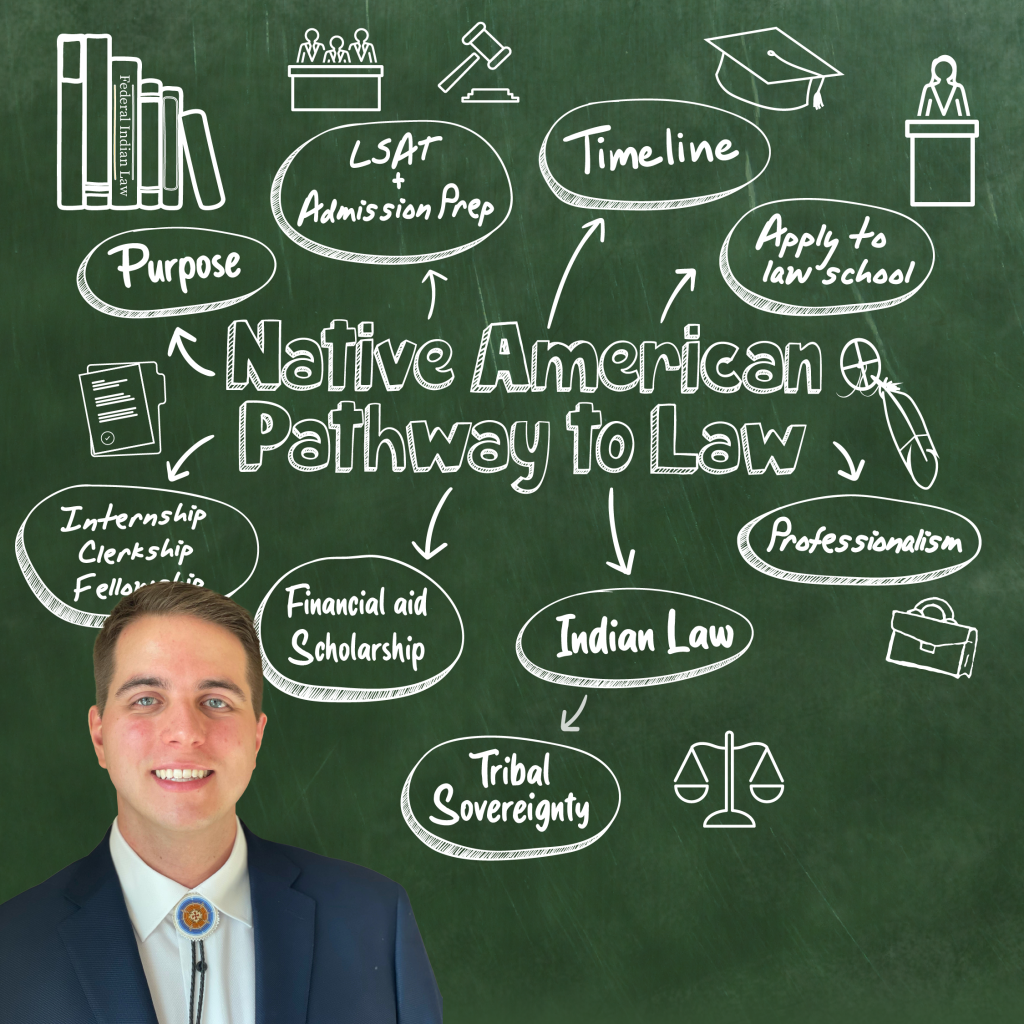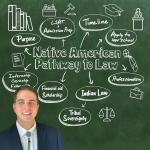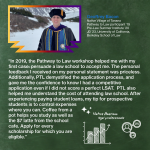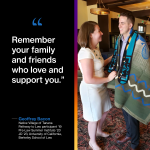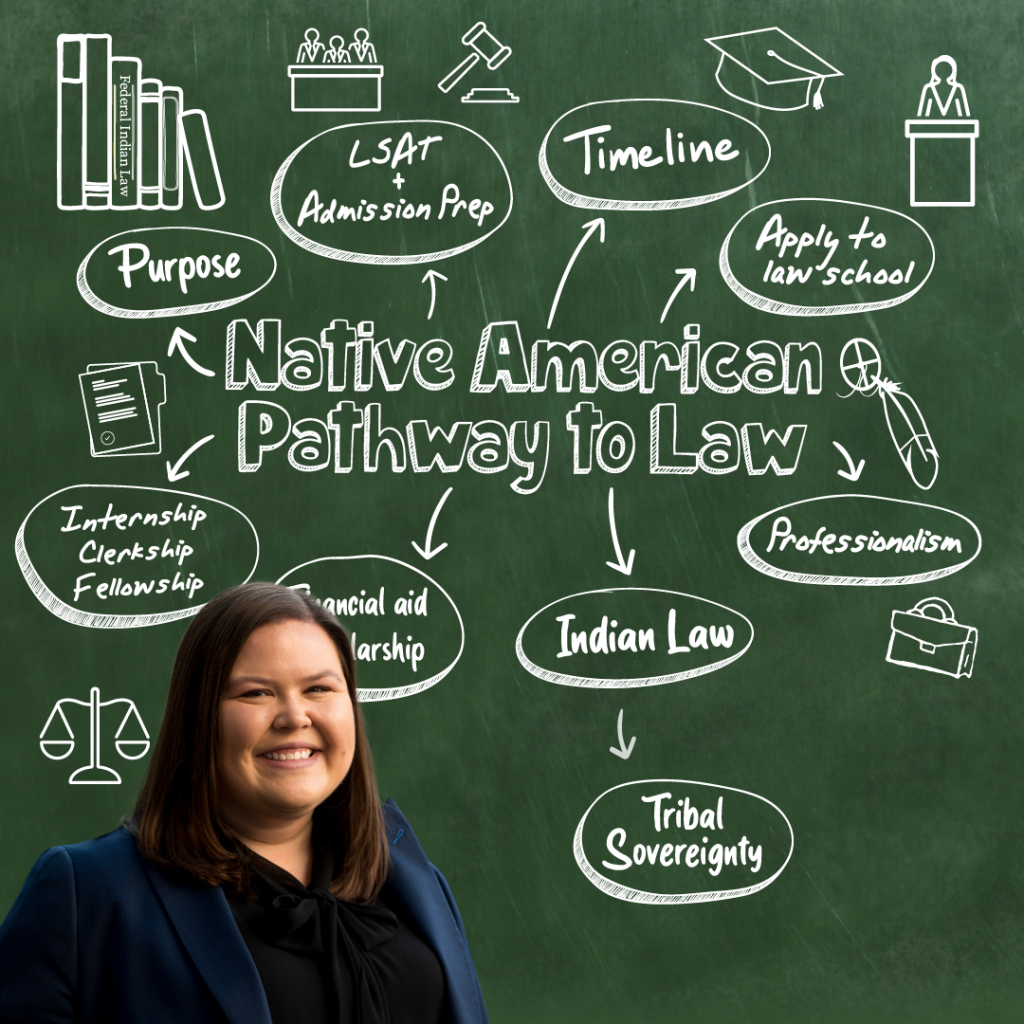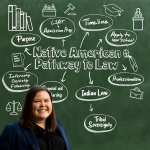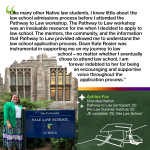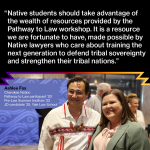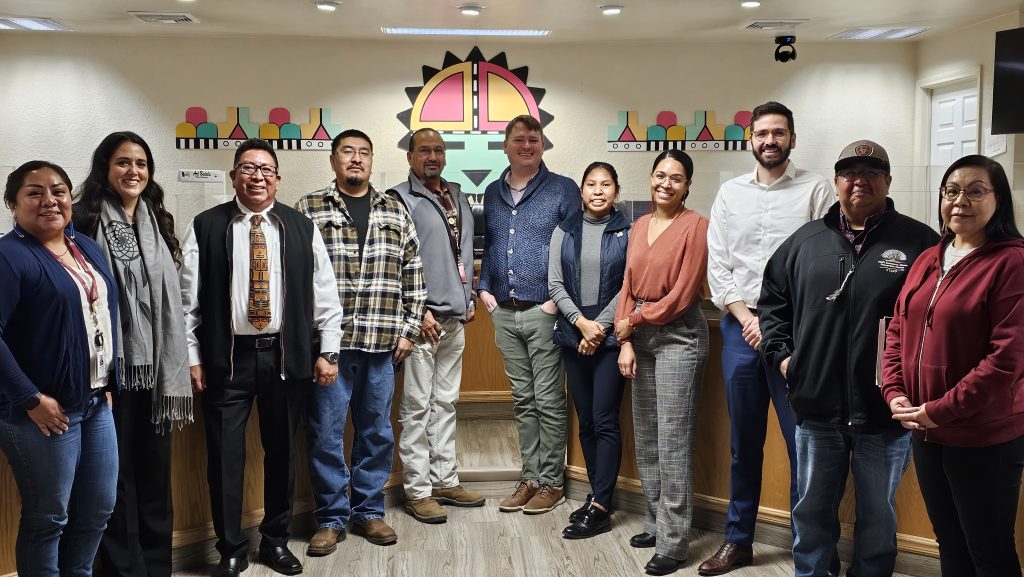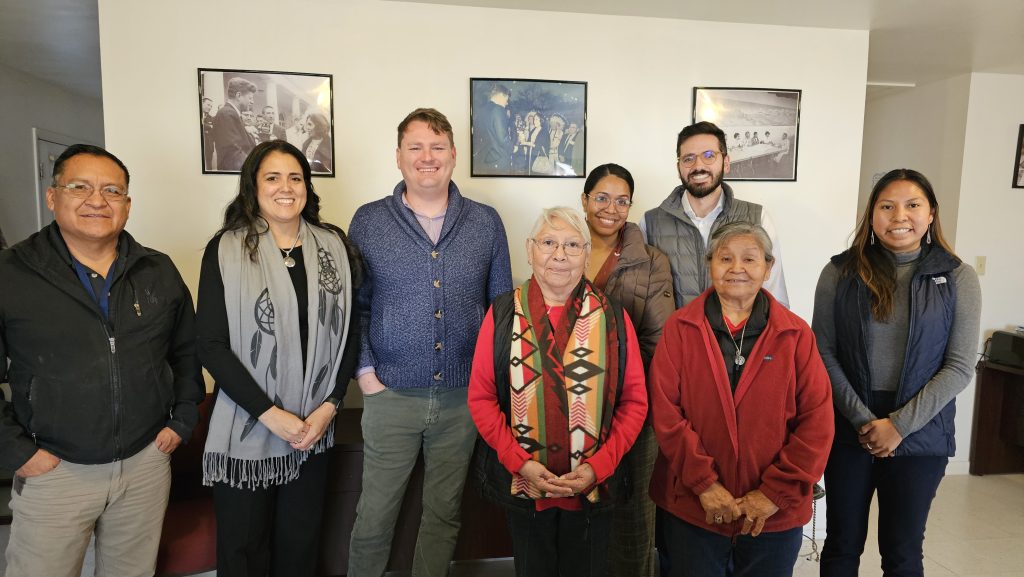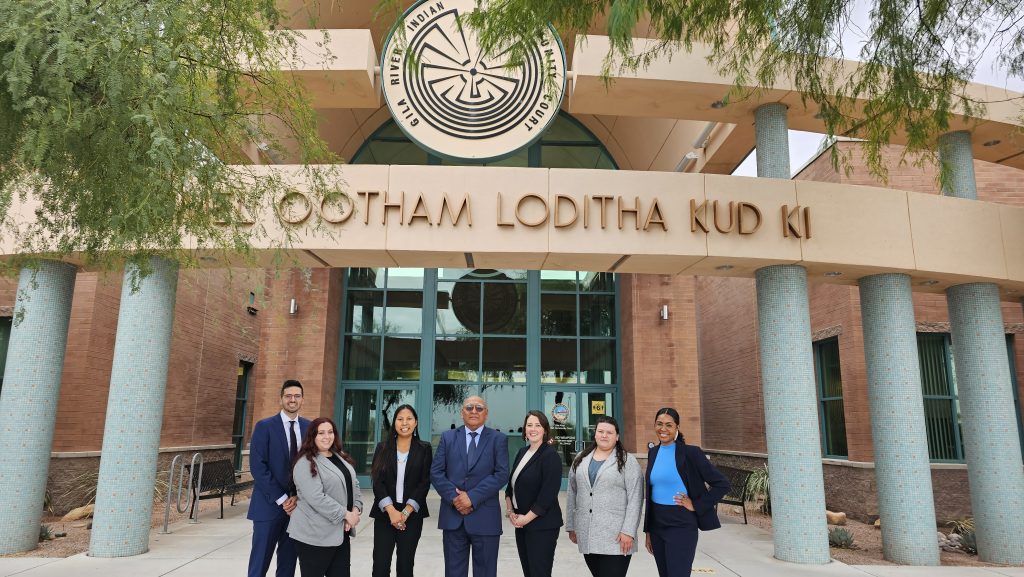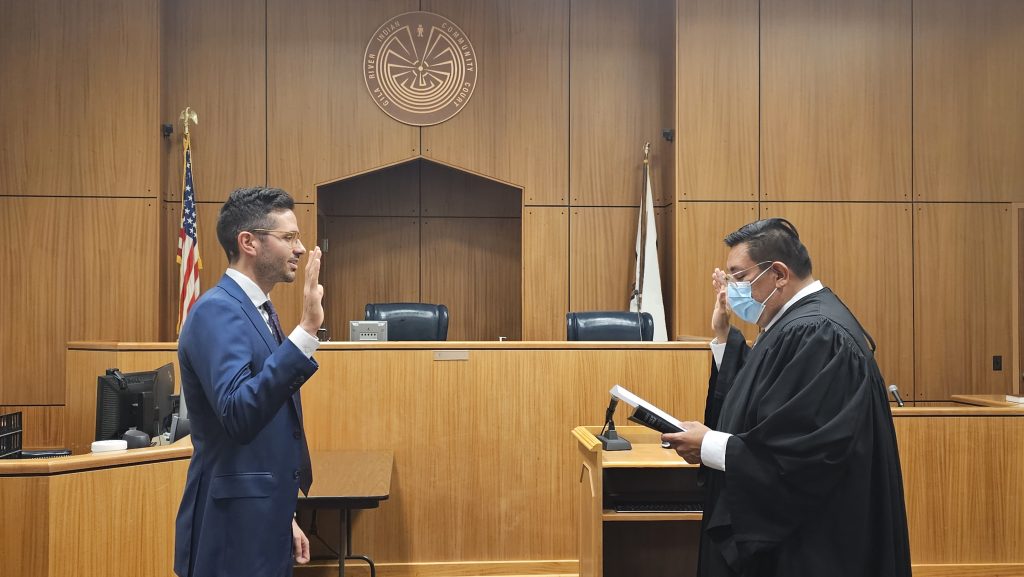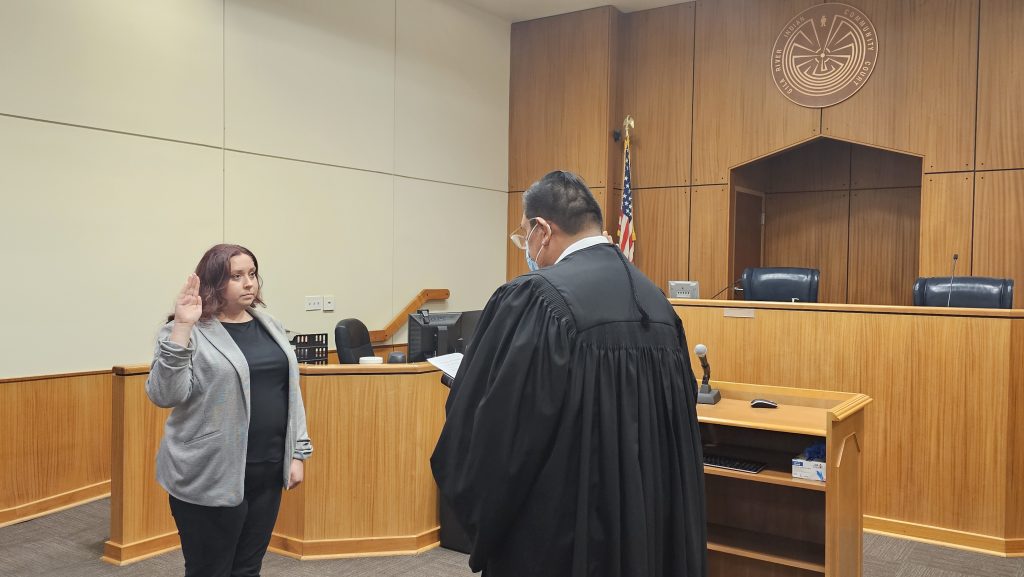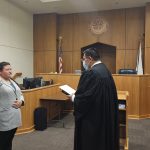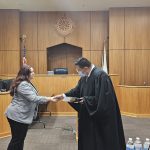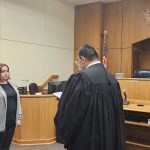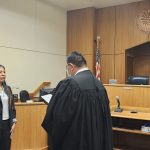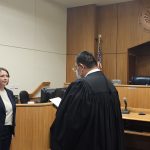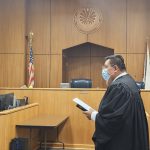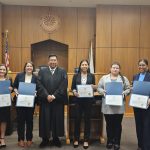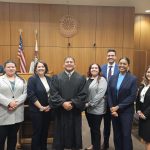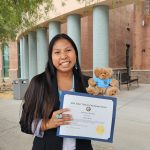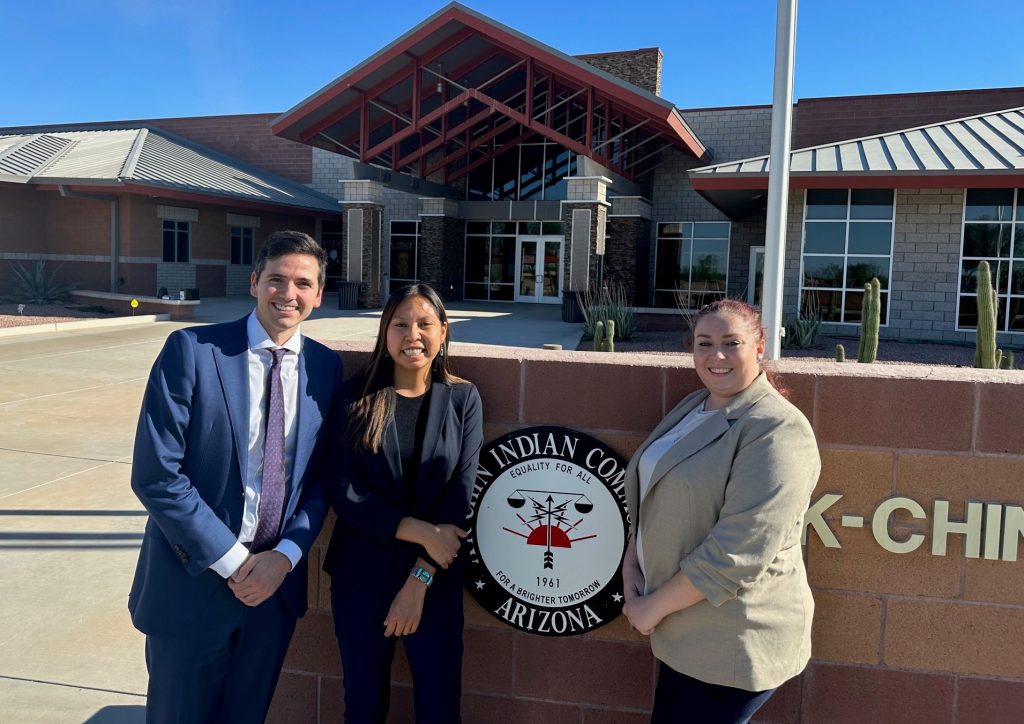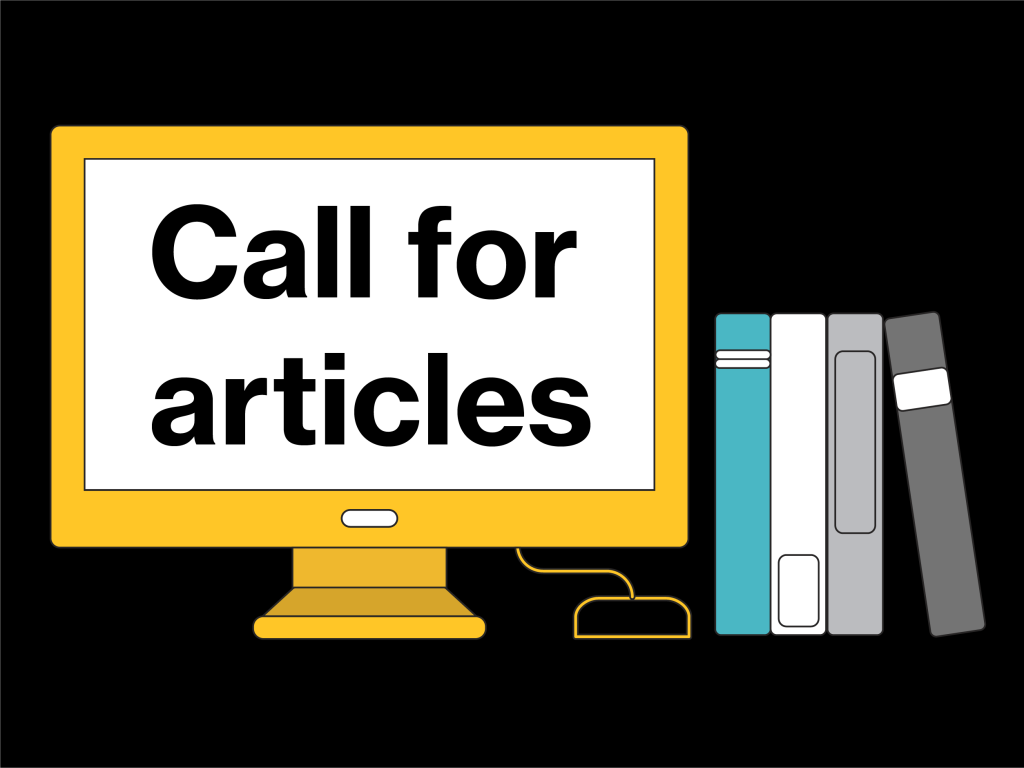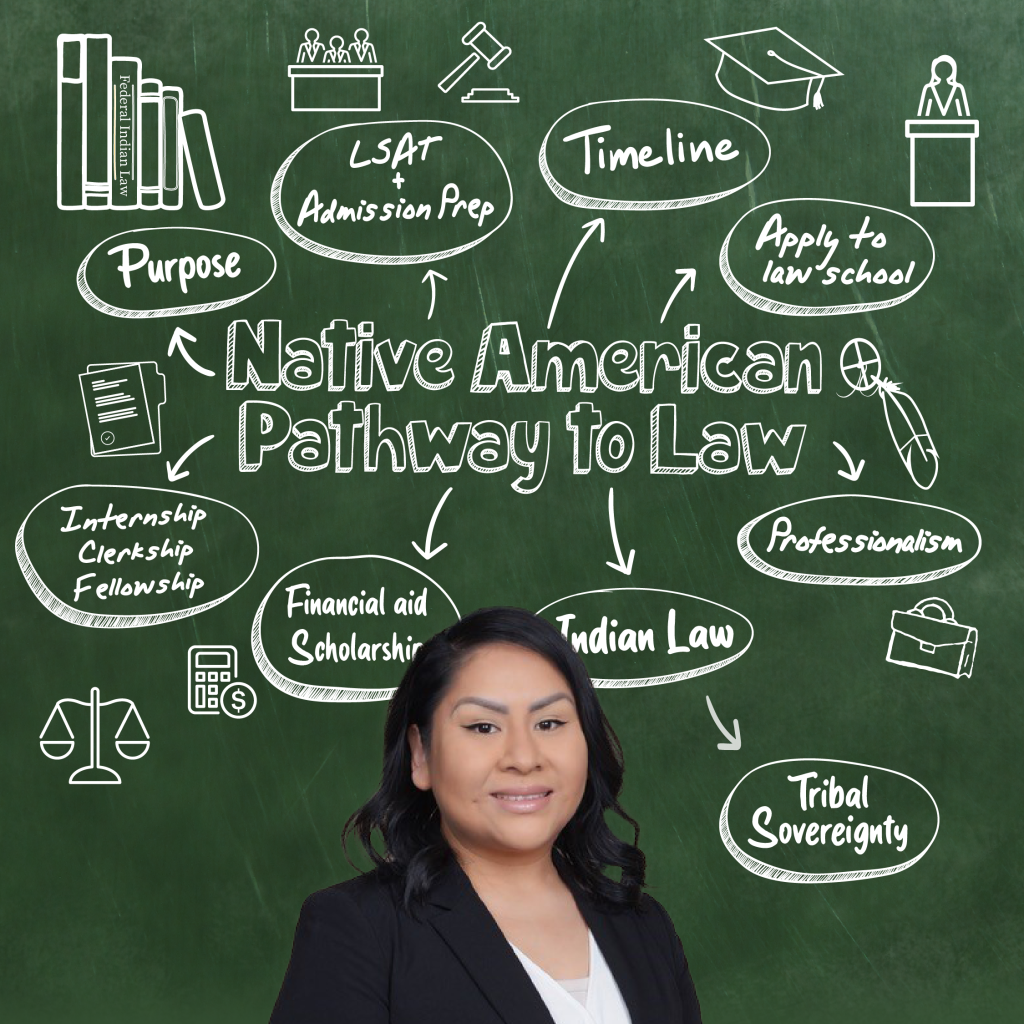
Robin Bilagody
Gila River Indian Community
Pathway to Law Workshop ’19
Pre-Law Summer Institute ’21
JD candidate ’24, Michigan State University College of Law
What was your experience with the Pathway to Law Workshop?
Overall, Pathway to Law is an amazing experience that provides valuable advice to Native students on how to prepare and approach the law school application cycle. Additionally, the law professors, deans and attorneys share their advice on everything from choosing the right law school to helpful tips on ways to succeed in law school, especially during the first year. Moreover, the PTL staff and volunteers are all extremely supportive and encouraging.
What information did you find most important in the Workshop (i.e. LSAT prep, personal statement building, etc) and why?
I found the LSAT prep and personal statement building the most helpful. The LSAT prep portion introduced me to the actual LSAT and how challenging it can be, as well as the various prep programs that can be very useful in helping to increase my score. The personal statement building guided me on ways to begin my statement that would be useful for the application cycle. During the personal statement building, we received one-on-one feedback on our statement from admissions staff. Even after the workshop, I was fortunate to receive assistance from a law professor who provided me with endless support and feedback on my personal statement and the application process.
Would you recommend students interested in law to attend the Workshop?
Yes, I would highly recommend students interested in law to attend the workshop, especially Native students. This workshop is such a valuable resource in educating and guiding prospective students on the daunting law school application process.
Do you have any tips for prospective students?
Attend the workshop and see if this is something you would like to pursue. If so, I highly recommend the Pre-Law Summer Institute, which is another amazing program for Native students interested in law school. These two programs are useful resources that are specifically structured to help Native law students succeed in law school and once we all enter the legal field. Remember your reasons for pursuing a law degree and stay motivated in the face of challenges, especially as Native people because we all deserve to be in these spaces.

